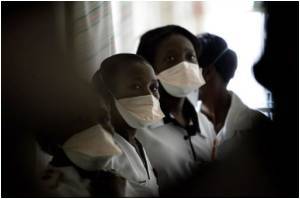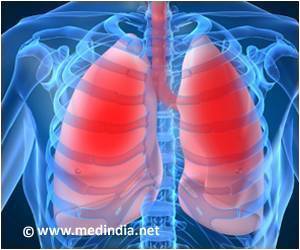
"These findings represent an effort to help solve one of the major global health crises of our time-the resurgence of TB and its dangerous drug-resistant strains," said Peter G. Schultz, the Scripps Family Chair Professor of Chemistry at TSRI.
"In cell cultures and in mice, this compound showed powerful activity against ordinary active TB bacteria, non-replicating TB bacteria and even extensively drug-resistant TB strains," added Feng Wang, a member of the Schultz lab at TSRI and first author of the study with Dhinakaran Sambandan of the Jacobs lab and Rajkumar Halder of the Schultz lab.
Although isoniazid and rifampin, the two front-line TB drugs, came into use in 1952 and 1967 respectively, new TB infections still occur at the rate of roughly one per second.
Most existing TB drugs work poorly against non-replicating TB, having been developed principally for their ability to kill actively replicating TB. Wang therefore set up a different kind of screening test-one to detect compounds that block TB's persistence-related ability to form biofilms.
Because experiments with live TB require a special (level 3) biosafety facility, Wang used a related but non-disease-causing mycobacterium for his initial, high-throughput test. Screening a diverse library of 70,000 compounds, he quickly found one, dubbed TCA1, that stood out for its ability to inhibit mycobacterial biofilms.
Advertisement
"Surprisingly, it turned out to kill both non-replicating and replicating TB," Wang said.
Advertisement
TCA1 also showed strong effectiveness against drug-resistant TB strains, removing all signs of one common strain within a week when combined with isoniazid. Against a highly fatal "super-bug" strain from South Africa, which resists all conventional TB drugs, the new compound on its own had a kill rate of more than 99.999 percent within three weeks.
As expected, TCA1 also showed potent effects against non-replicating TB. Tests in mice confirmed TCA1's effectiveness and suggested that the combination of TCA1 and isoniazid could be more powerful than existing drug regimens. TCA1 showed no sign of toxicity or adverse side effects in cell culture and mouse experiments, and also showed almost no tendency to induce drug resistance in TB.
The researchers also found the new compound works in an apparently unique way, largely by targeting two Mtb enzymes, one supporting TB replication and the other TB dormancy and persistence.
The finding appeared this week online ahead of print in an Early Edition of the Proceedings of the National Academy of Sciences.
Source-ANI















